Whenever people ask me what I miss about Australia, one of the things that come to mind are 1kg tubs of Chobani Greek yoghurt. The protein content was really good, and I like how it’s on the sour side as well.
So I was a bit disappointed when I first moved to Japan, and these 1kg tubs of high-protein yogurt were nowhere to be found. There were little 100g tubs though, and so for quite a while I made-do eating two of these a day (not good for my wallet, I know).
These days I’ve settled on making my own, which is much cheaper. But if anyone else happens to be Greek yogurt-obsessed like me, here’s a post running through some of the different high-protein Greek yogurt options in Japan.
Oikos: the OG
I love Oikos, and it’s probably the closest to Chobani. It tastes great and is available at any super market or convenience store. The standard 113g tub comes in two variations:
- No-sugar: 12g of protein and 71 calories
- Flavoured (including a “plain” flavour): 10g of protein and 92 calories
There’s a variety of flavoured options like strawberry, and they sometimes have limited-time seasonal flavours as well. They do taste better than the non-sugar one, which makes sense considering they have less protein and more calories per tub.
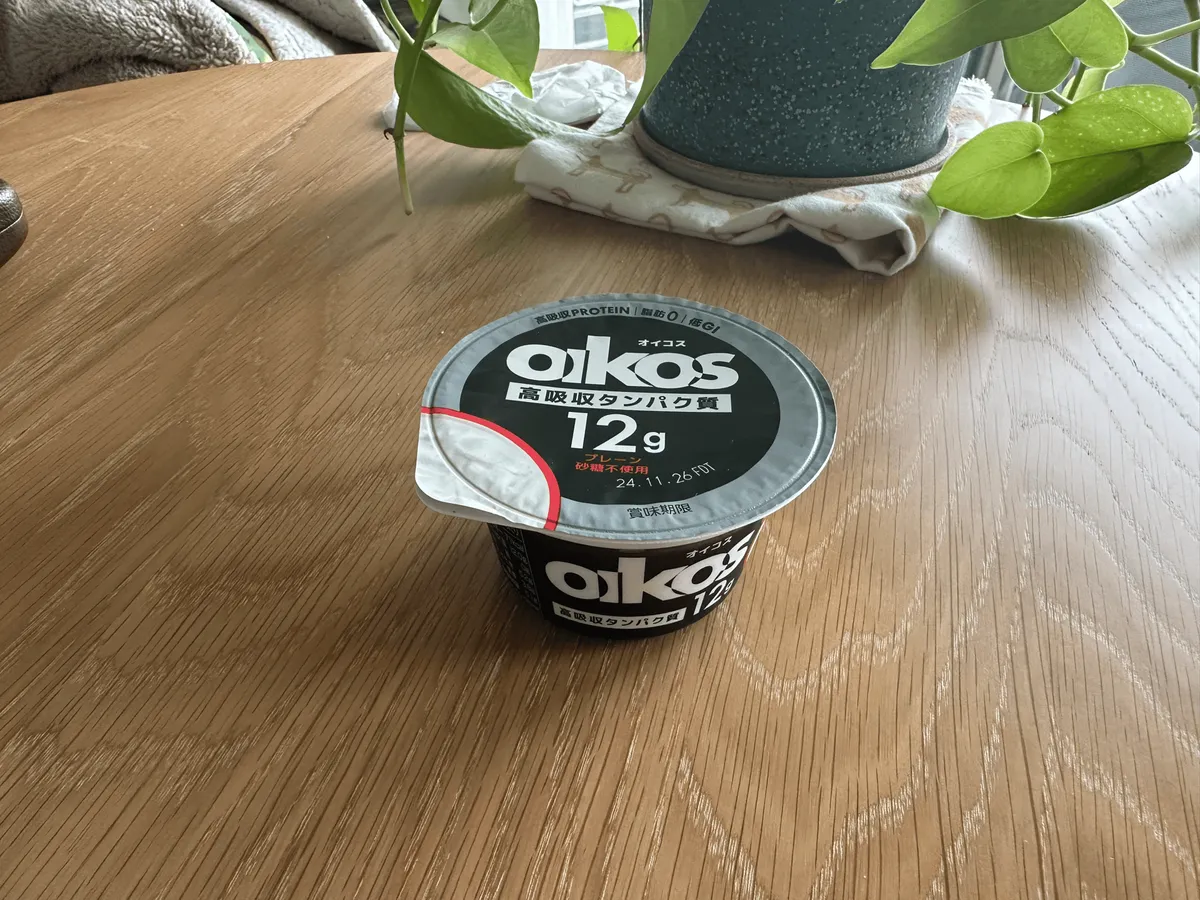
I’ve also rarely seen a larger 170g tub that comes with 18g of protein and 107 calories.
Where to buy Oikos:
- Costco: Apparently they sell a 12 pack for 1248 yen. I don’t have a Costco membership so I’ve never seen this in-person, but at 104 yen per cup this is a steal.
- OK Store: 131 yen
- AEON Store: 181 yen
- Any major convenience store: 193 - 204 yen depending on the flavour
TopValu Greek yoghurt: great taste, but harder to get
At 138 yen per cup, TopValu’s Greek yogurt is a relatively well-priced option and the taste is pretty good. The only downside is that TopValu is the home brand of AEON, and so this is only stocked at AEON supermarkets (and possibly MyBasket which also owned by AEON, but I haven’t checked). So you have to live near one to be able to buy it.
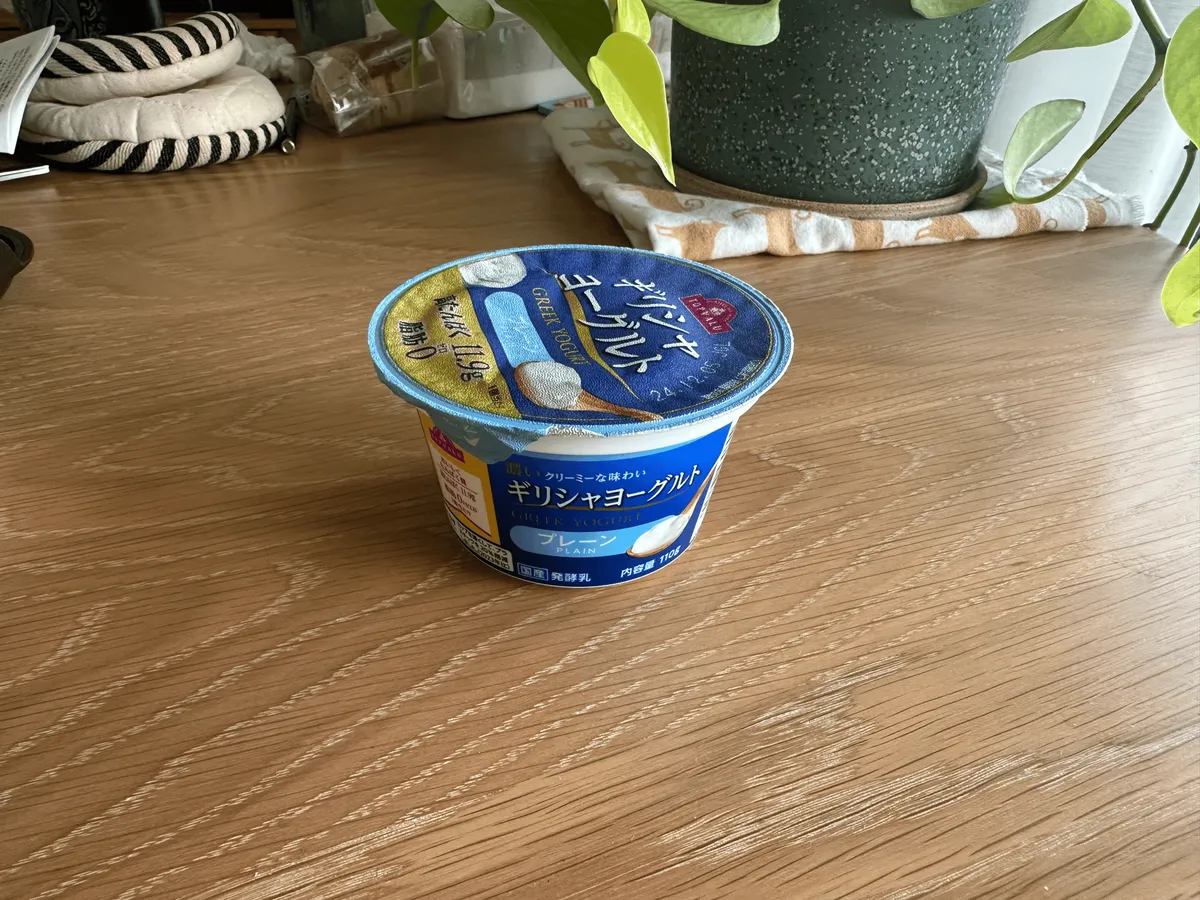
Like Oikos, there’s two variations of the 110g TopValu Greek yogurt:
- Plain: 11.9g of protein and 67 calories
- Flavoured: 9-10g of protein and 90 calories
Actually, I would say that the taste of the plain AEON is better than the no-sugar version of Oikos. So maybe this is the best Greek yogurt brand in Japan.
Partheno Greek yogurt: it’s alright
Another contender to the high-protein Greek yogurt cups is Partheno (or パルテノ), which takes its name from the Parthenon in Greece. Again, this also comes in a range of flavours. I’ve only tried it once, but I found the taste to be pretty mid.
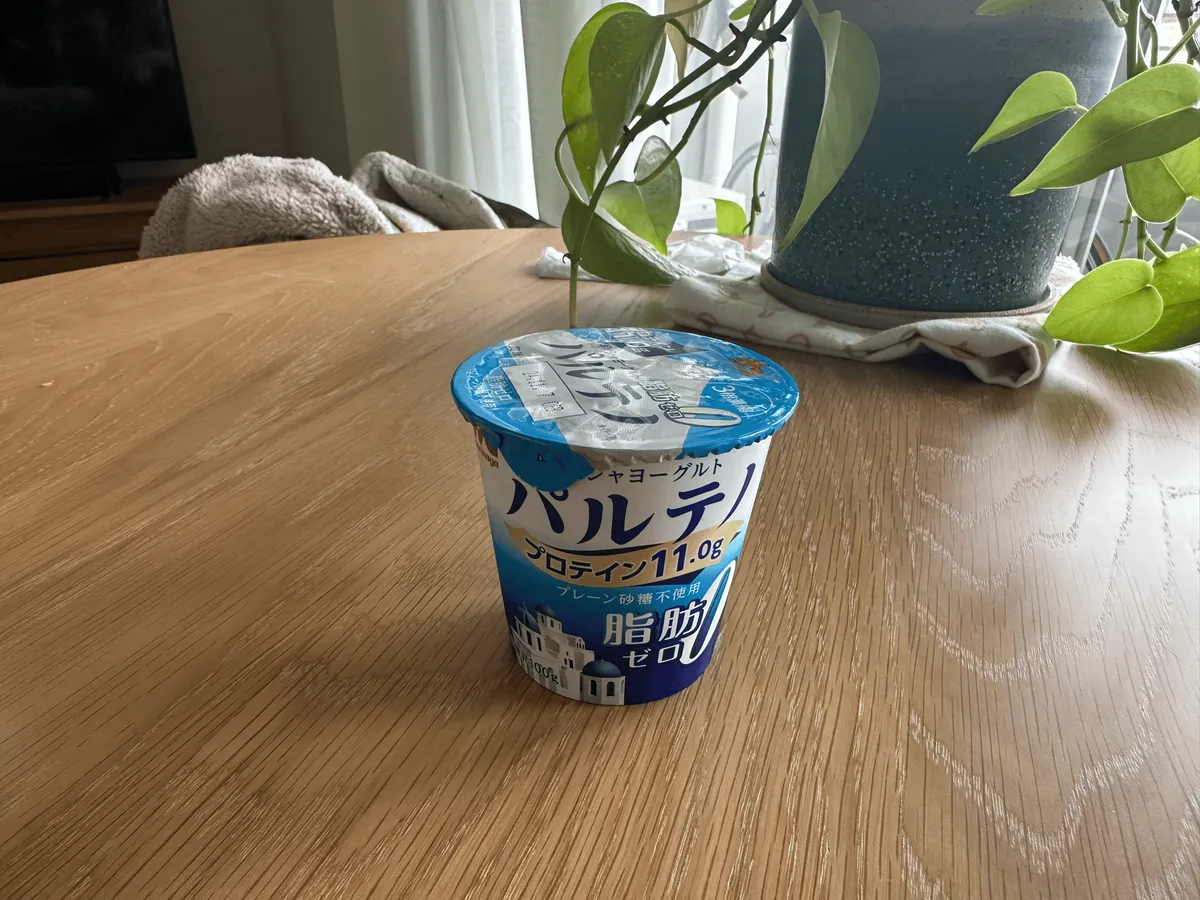
For a 100g tub, you’ll get 68 calories and 11g of protein.
TopValu Protein Yogurt: not great
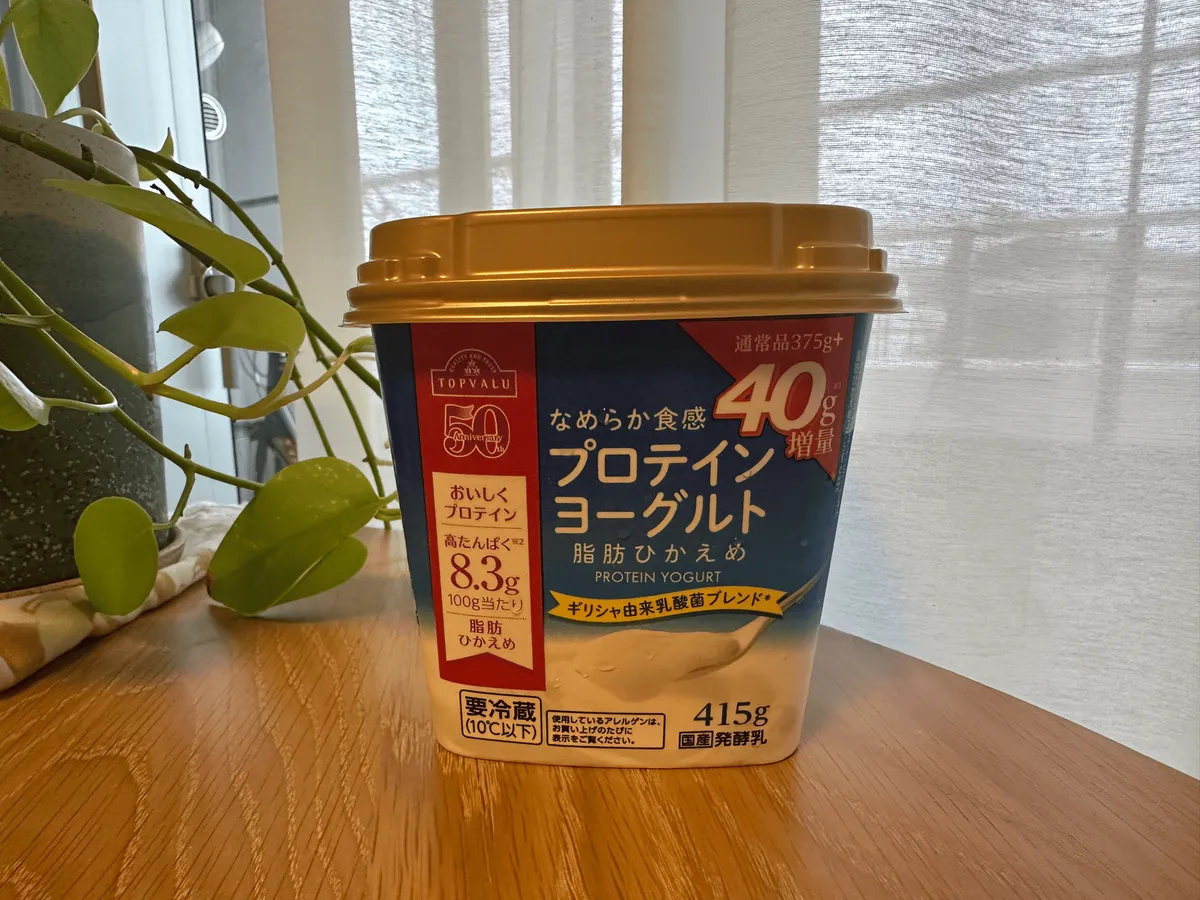
So TopValu’s protein yogurt isn’t actually Greek yogurt, but I thought I may as well include it while we’re talking about high protein yogurt. Unfortunately, it doesn’t taste great. In an attempt to make the yogurt high-protein it’s lost a lot of the tastiness. It’s sour, but missing that creamy mouthfeel that you get with the Oikos and TopValu Greek yogurt cups.
The one upside is that it’s the only large size high-protein yogurt tub you can buy. Each tub is 415g, with 68 calories and 8.3g of protein per 100g serving.
Similar to the other TopValu yogurt, you can only buy this at AEON, and it costs 278 yen for the tub. That’s approximately 70 yen per 100g serving, so it’s by-far the cheapest option if you don’t mind the taste.
Savas yogurt: does not make for tasty yogurt
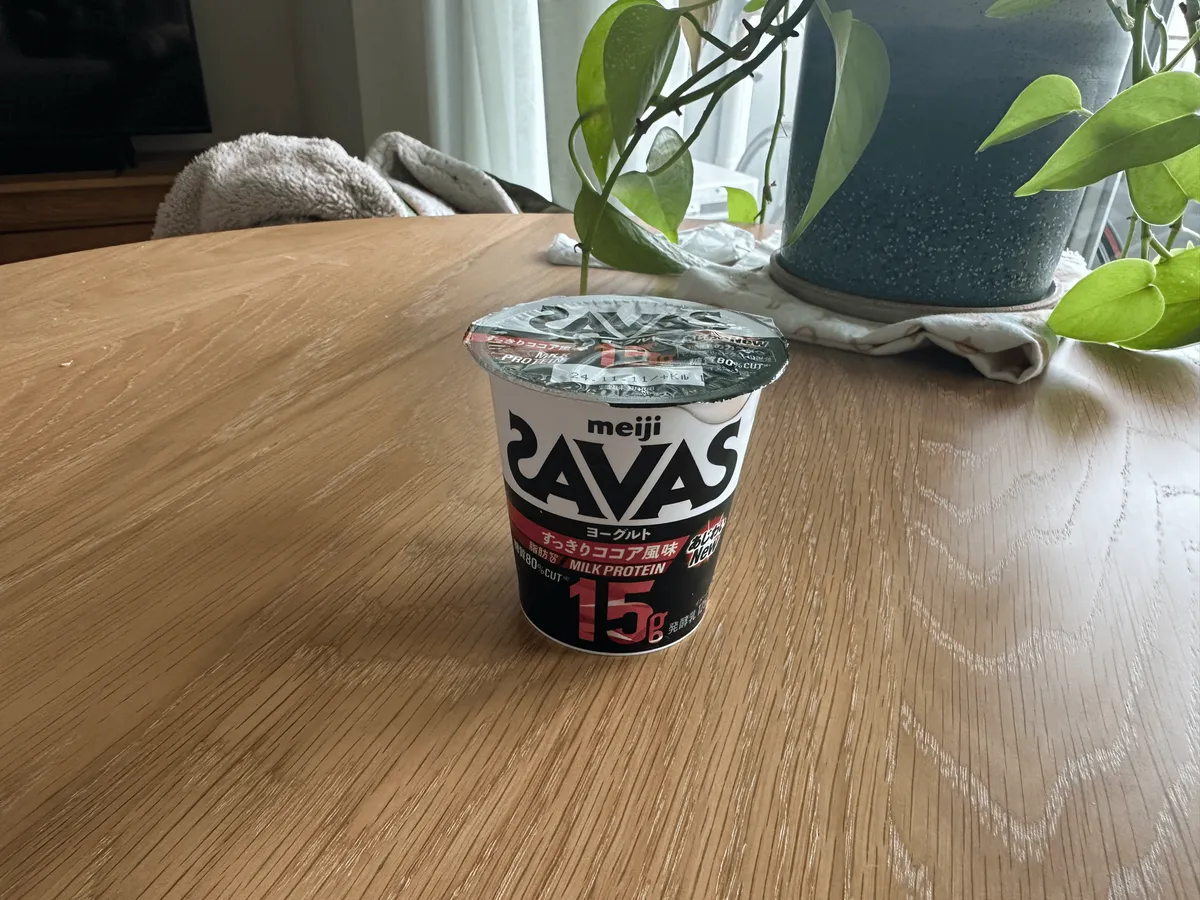
So Savas is originally a protein powder company, and the protein drinks they sell taste very good and I would recommend them if you need a quick source of protein. However, their high-protein yogurt tastes pretty bad. It tastes like they mixed in protein powder to a yogurt, but with the bitter aftertaste of artificial sweeneters.
For a 125g cup, they had 70 calories and 15g of protein. This does put them at a higher protein-per-calorie ratio than the other yogurts listed above, but with the downside of reduction in tastiness. I wouldn’t buy this again, but if you were interested, they were selling them at AEON for 192 yen.
An honourable mention: Savas drinkable yogurt
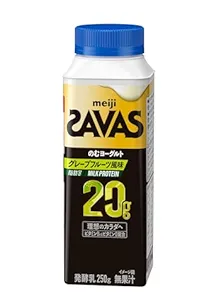
Savas have also started putting out a new drinkable yogurt series, and I think this tastes great. Much better than the yogurt, anyway.
It comes out to 20g protein per 140g calories. I’ve seen them sometimes at convenience stores, but it’s a bit of a hit or miss whether they are stocking them.
Home-made Greek yogurt with protein powder
So after all this talk about buying Greek yogurts at Japanese supermarkets, what I eventually settled on was making my own. Although you can’t quite meet the macros of store-bought high protein Greek yogurt, the taste and cheapness makes up for it.
All DIY yogurt takes is milk and a “starter” which is like the bacteria that gets the milk’s fermentation process going. You can use whatever milk you want, with varying results. I have tried low-fat milk, but without the creaminess from the fat, you lose a lot of the taste so I just stick with regular milk. I also tried soy milk once, but then realised although I like the taste of soy milk in my coffee, I wouldn’t be able to drink a glass of it straight, and so I didn’t enjoy eating yogurt made from soy milk either.
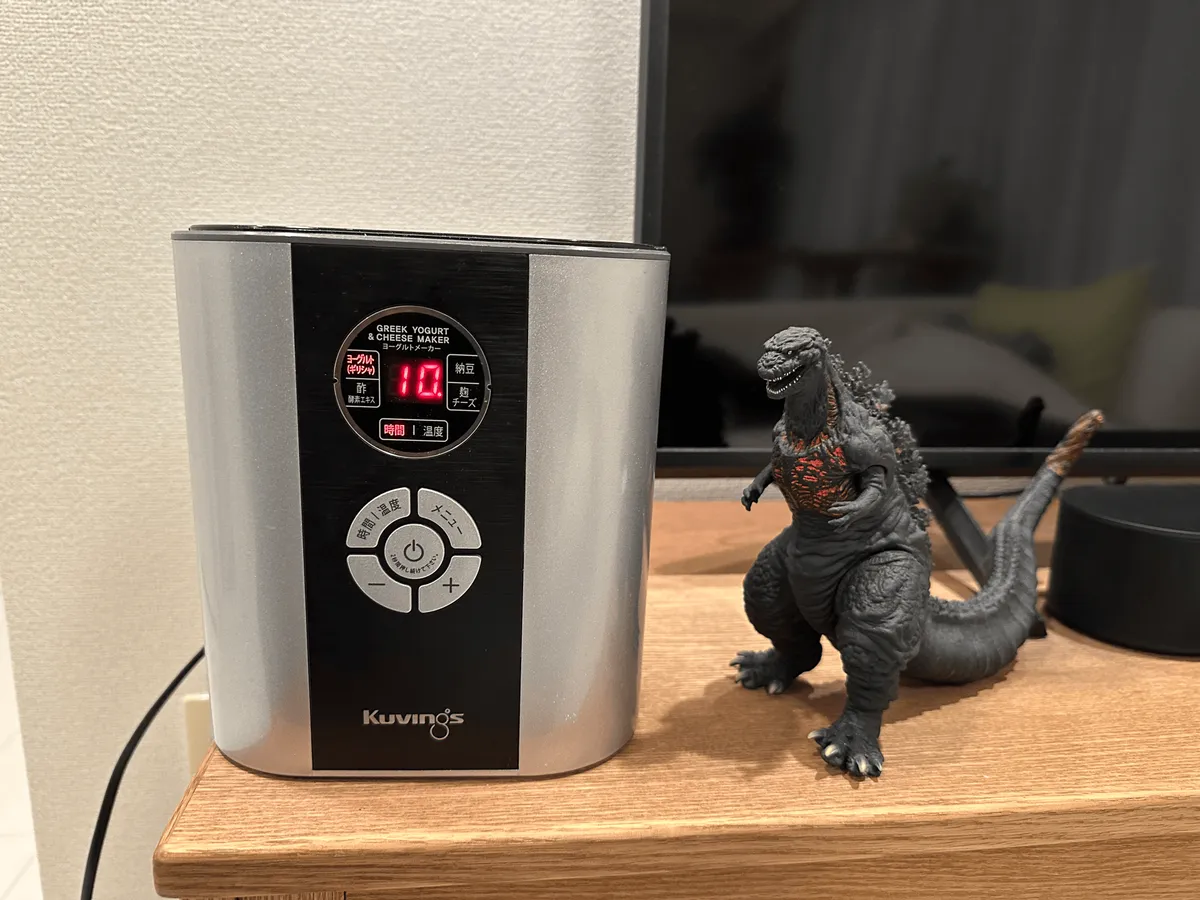
I use this yogurt maker I bought off of Amazon, which just involves you putting in a litre of milk, your starter, and then letting it sit for 8 - 12 hours. The starter can be a powder you buy online, or you can mix in a tablespoon of yogurt (either store-bought, or from a previous batch).
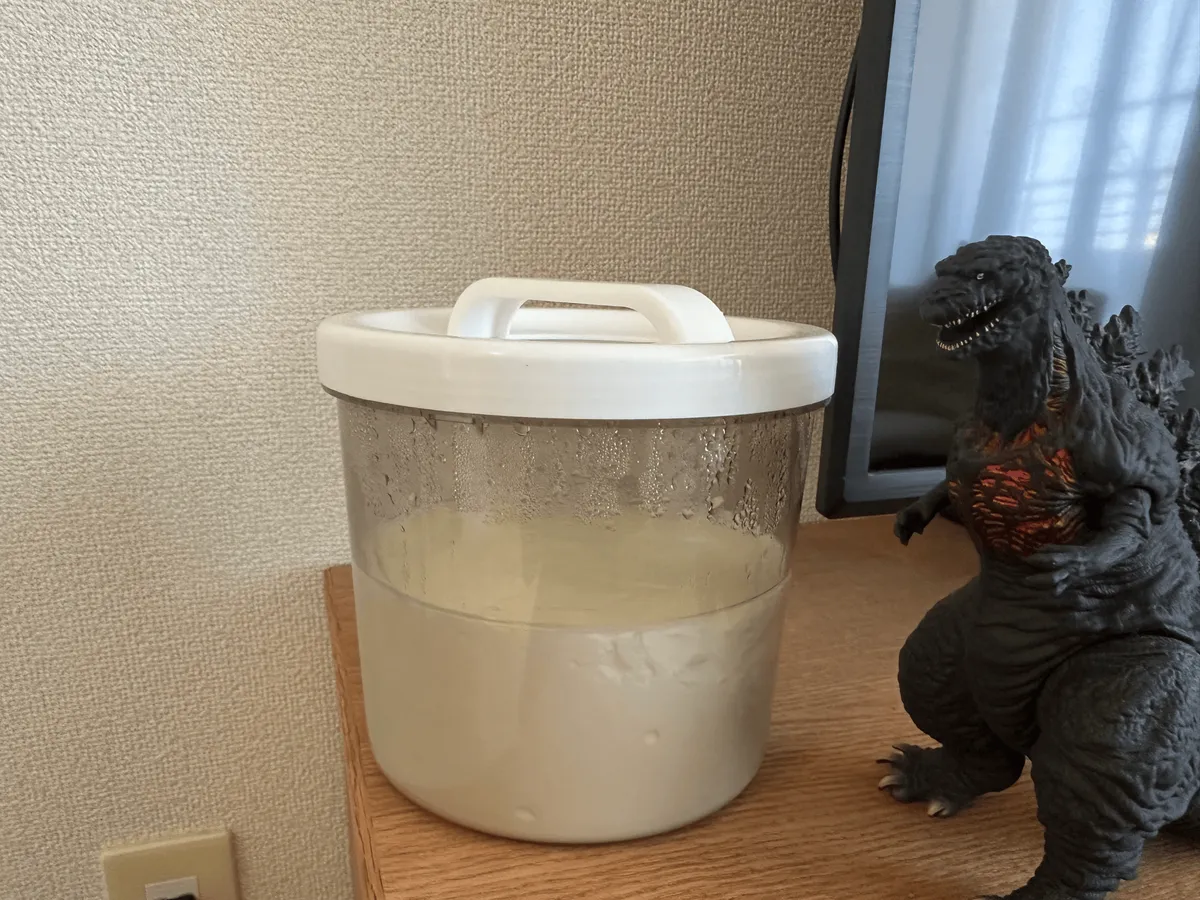
After making my yogurt, I usually let it chill in the fridge for about 12 hours, and then strain it for another 12 - 24 hours to turn it into Greek yogurt. From a litre of milk, about half of it gets strained out as whey, leaving me with 500g of yogurt.
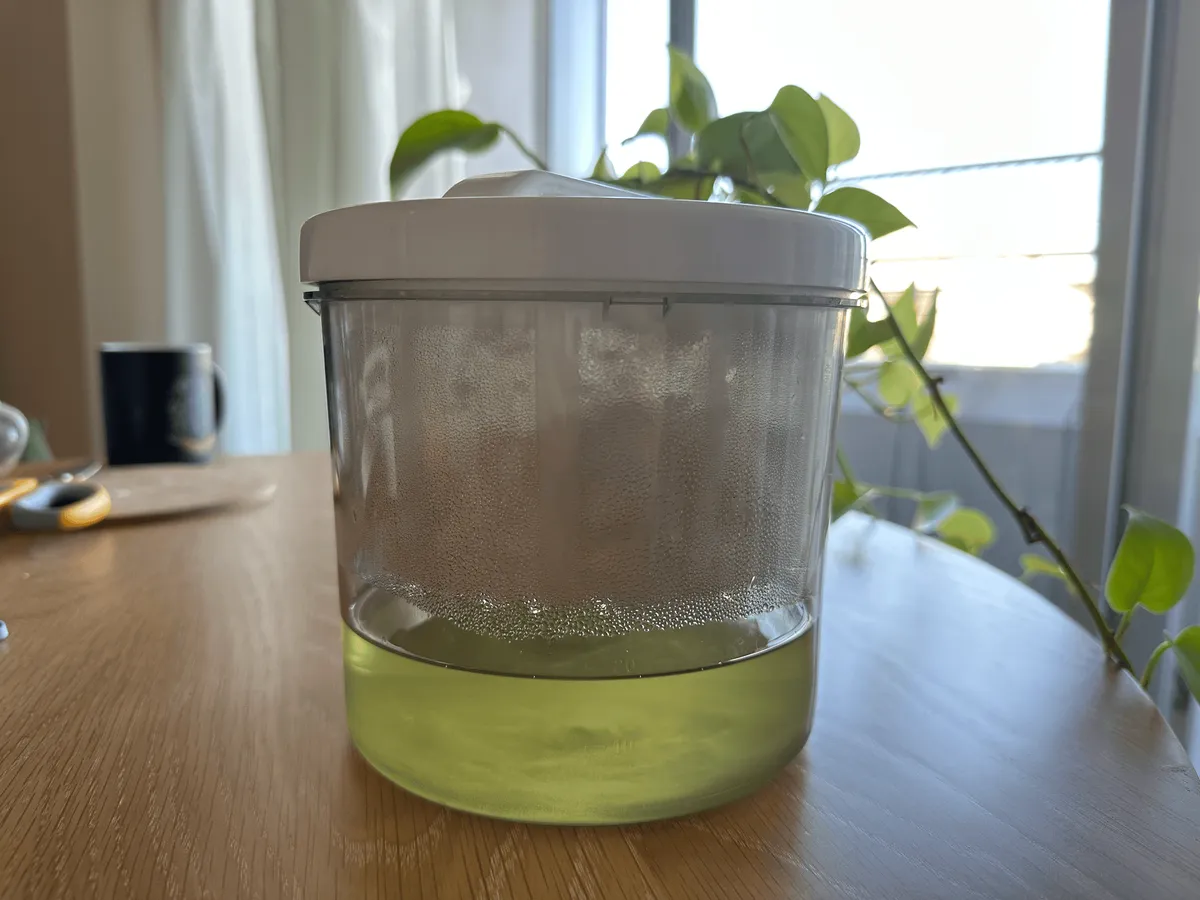
Now this isn’t a very exact science, but the internet tells me that 246g of whey contains 59 calories, including 13g of carbs and 1.9g of protein. So from that, you can also calculate the approximate macros by getting the macros of the milk and then minusing the whey:
- 1L of milk: 695 calories, 34g protein
- 500g of whey: 120 calories, 3.8g protein
Which comes to 575 Calories and 30g of protein for 500g of Greek yogurt. Now splitting this into three servings, and factoring in some protein powder:
- DIY Greek yogurt: 190 calories, 10g protein, 87 yen (assuming 260 yen for a litre of milk)
- 15g X-Plosion protein powder: 58 calories, 10.5g protein, 35 yen
I end up with 250 calories, 20g protein and in all it costs me 121 yen per serving.
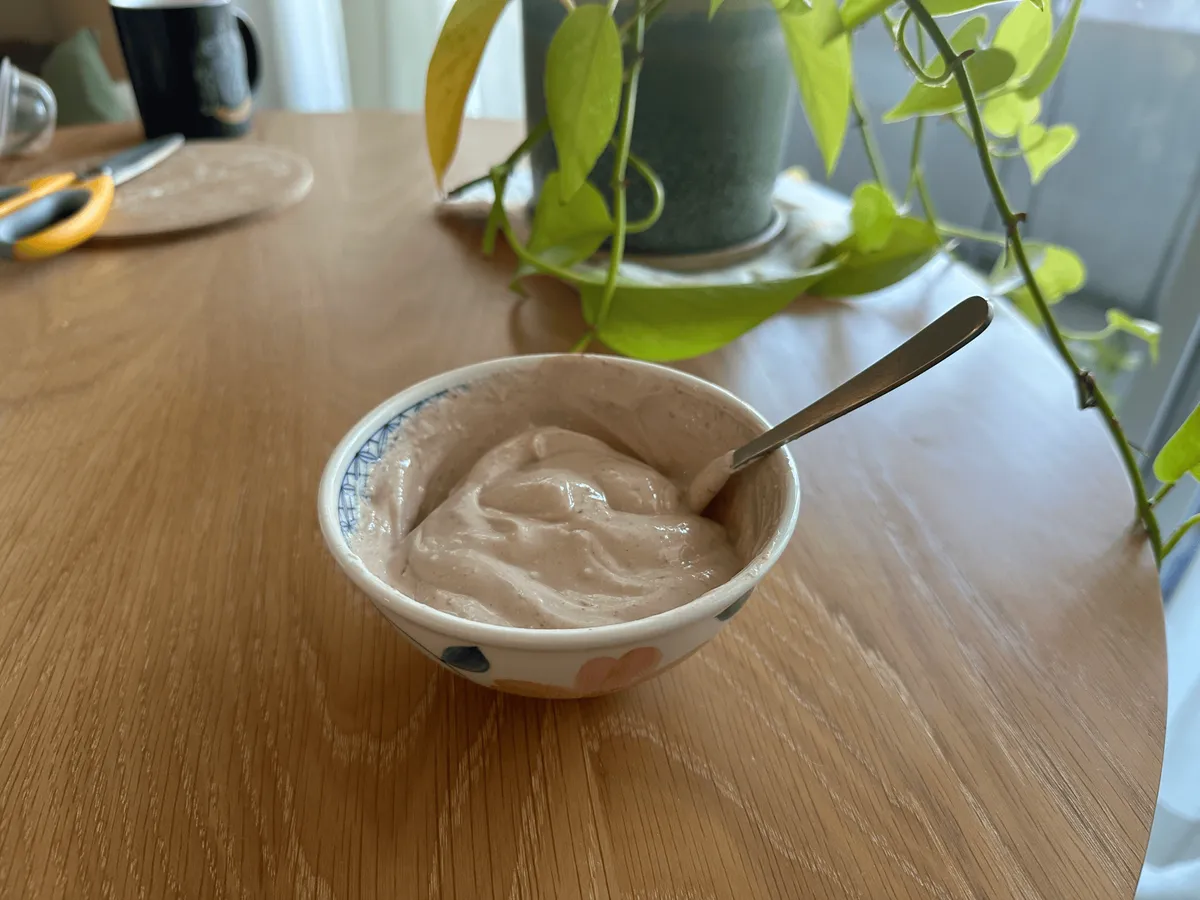
I’d never done the macro or price math on it properly before, because I decided I was happy with the taste so didn’t want to nitpick too much. If you compare it to two tubs of 10g protein yogurt, which would cost anywhere from 260 - 380 yen, that’s pretty decent value. Of course, if you didn’t bother to strain out the whey, you’d get a lot more volume and bang for your buck as well.
Leave a comment